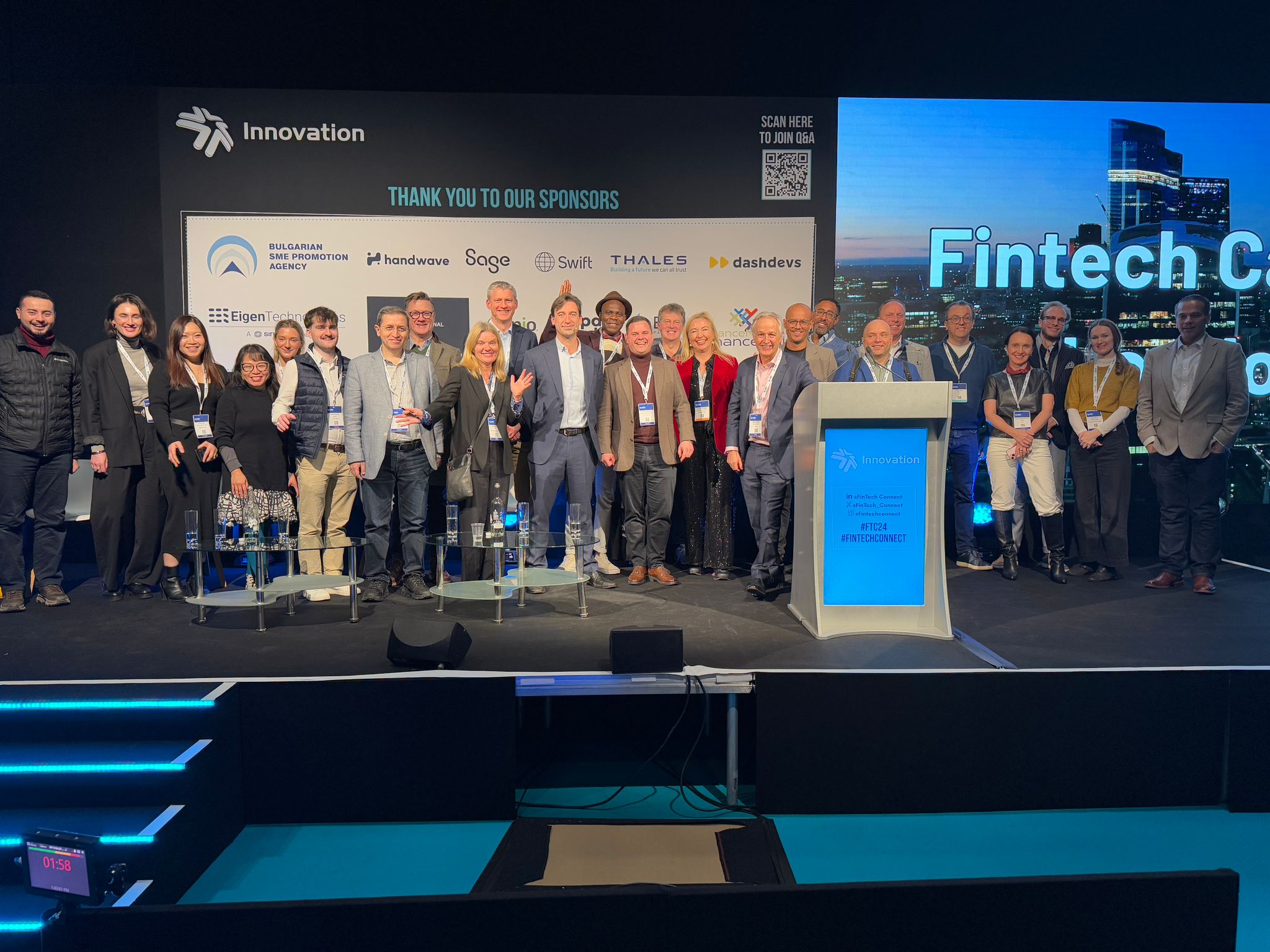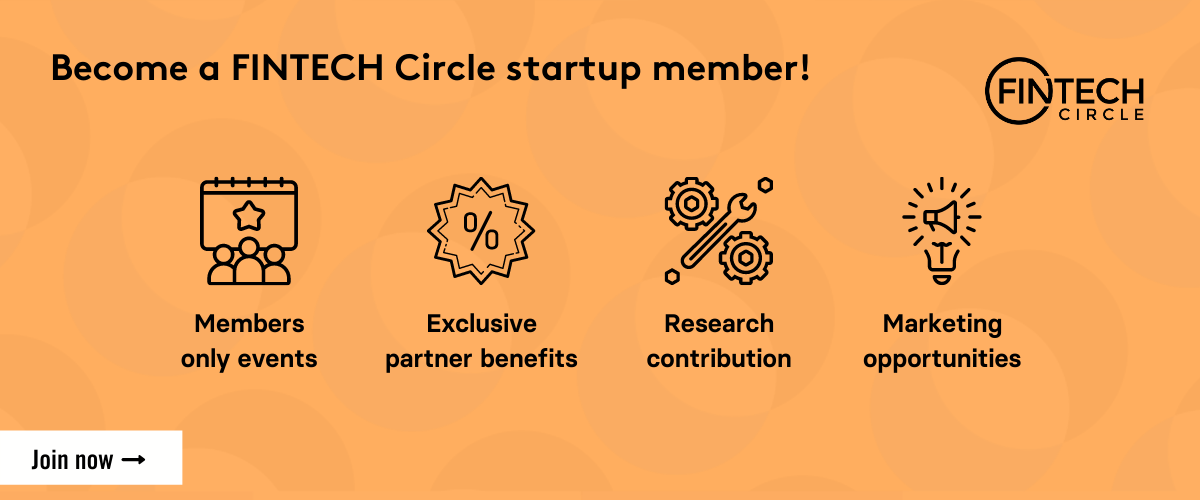Fintech Capital London Premiere and Panel Discussion

Date: 12 December 2024
Author: FINTECH Circle
The recent Fintech Capital London film premiere set the stage for an engaging panel discussion featuring top voices in the fintech space. The session provided valuable insights into the industry’s evolution, challenges, and opportunities as we move into 2025. Here is a comprehensive dive into the key points shared during this thought-provoking conversation.
The Evolution of Fintech Investment
Susanne Chishti, an industry leader, set the tone for the discussion by highlighting the significant shift in fintech investments over the years. Panelists, including Chris Hill, Andy Creak & Alexander Luca, explored how the landscape has evolved from speculative funding to more strategic investments, emphasising technologies that offer measurable outcomes.
Emerging hubs like London are becoming focal points for these transformative efforts, though challenges, such as balancing innovation and regulatory demands, persist.
The panel also discussed how global market conditions have shaped investment priorities. While fintech innovation is thriving, securing long-term, sustainable funding remains critical for the sector’s growth.

Leveraging Technology for Financial Inclusion
Andy Creak passionately addressed the need for fintech to revolutionise financial inclusion. He illustrated how traditional financial systems leave much to be desired, with “lazy money” often locked in pensions or underutilised savings accounts. According to Creak, fintech can bridge these gaps by democratising access to wealth management tools, enabling individuals to make informed financial decisions seamlessly.
Chris Hill echoed these sentiments, emphasising the importance of creating user-centric solutions that empower people to take control of their financial futures. He pointed out that technology, when harnessed effectively, can transform how consumers interact with their finances and make wealth-building accessible to all.
Creak and Hill both noted that while automation has streamlined certain processes, there is still significant opportunity for technology to play a transformative role. From algorithms to AI-driven platforms, the ability to deliver highly personalised financial strategies without the need for human intermediaries is where the industry is headed.
Bridging Technology and Regulation
A critical theme that resonated throughout the panel was the intersection of technology and regulation. The introduction of consumer duty regulations was highlighted as a double-edged sword. On one hand, these measures ensure better protection for consumers, while on the other, they pose operational challenges for smaller fintech firms.
However, the conversation took a positive turn as panelists shed light on innovative fintech solutions addressing these regulatory hurdles. Chris Hill shared examples of how technology can streamline compliance processes, enabling firms to meet stringent requirements without incurring unsustainable costs. This approach ensures not only efficiency but also scalability, making it a win-win for businesses and consumers alike.

The Commoditisation and Customisation of Asset Management
Alexander Luca offered insights into the commoditisation of asset management over the past two decades. He described how advancements in algorithms and indexing have reduced the need for human oversight in portfolio management.
However, he pointed out that this commoditisation has created space for innovation, particularly in the form of AI-driven solutions. These solutions enable a high level of customisation, allowing individuals to receive tailored financial advice based on their unique circumstances.
For instance, middle-aged individuals planning for retirement can now benefit from strategies that align with their specific goals—all without needing to consult a portfolio manager. Chris Hill highlighted how this trend underscores fintech’s potential to redefine the asset management landscape by combining technological innovation with consumer empowerment.
Can London Rival Silicon Valley?
The panel’s concluding debate centered on whether London has the potential to become the next Silicon Valley. Opinions varied, but a recurring theme was the cultural difference between the UK and the US.
Andy Creak argued that the UK’s hesitancy to embrace failure hampers its ability to foster groundbreaking innovation. By contrast, Silicon Valley thrives on its “fail fast” mentality, which encourages experimentation and resilience.
Chris Hill added that while the UK has strong regulatory frameworks and a burgeoning talent pool, fostering a culture of collaboration and risk-taking is essential. Panelists agreed that for London to rival Silicon Valley, it must cultivate a culture that values both financial and human capital recycling.
Alexander Luca emphasised the importance of community, drawing parallels to Silicon Valley’s ability to continuously reinvent itself—from its early days as a hardware hub to its current status as a tech and innovation powerhouse. London, he suggested, should carve out its unique niche rather than mimic Silicon Valley’s path.
Moving Forward
As discussion drew to a close, the panelists reflected on the road ahead. They highlighted the importance of fostering collaboration, embracing failure as a stepping stone to success & leveraging technology to tackle systemic inefficiencies with strong regulatory frameworks & a thriving fintech ecosystem, London is uniquely positioned to lead this charge.
The session ended on an optimistic note, with panelists encouraging stakeholders to focus on balancing innovation with responsibility. As we enter 2025, the future of fintech promises to be both challenging and exciting, with London and other emerging hubs playing a pivotal role in shaping the industry’s next chapter.
Watch the Full Panel Discussion below 👇👇👇



